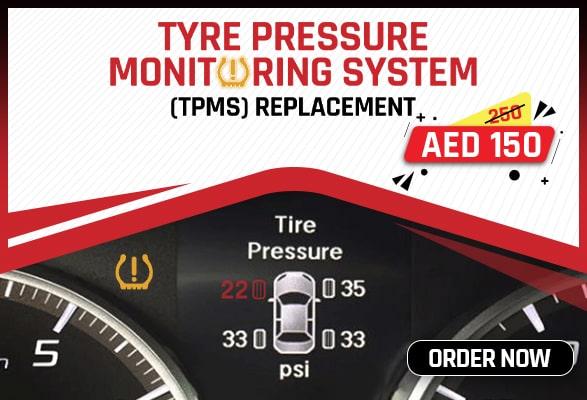Difference between a Hybrid and Electric Vehicle
Due to high demand, many car manufacturers are now making cars that are electric and hybrid. Even the governments encourage people to buy these vehicles as they save natural resources and do not pollute the environment. It is due to these policies that people are now opting for hybrid and electric cars. After all, why shouldn’t they? Such automobiles save fuel money and are highly efficient.
It is safe to say that old combustion engine cars will be replaced by hybrid and electric vehicles in the coming years, especially in developed countries. Unfortunately, there is a knowledge gap as the majority of the people are still confused and don't know the difference between a hybrid and an electric vehicle. One thing you need to know is that both are different and are not related.
So, the purpose of today’s blog post is to help you understand the difference between a hybrid and an electric vehicle. PitStopArabia will also share the pros and cons of each type so that you can make a more informed decision if you are planning to buy either vehicle. Without further ado, let us start.
WHAT IS A HYBRID CAR?
To keep things simple, hybrid cars have the traditional gasoline or diesel engine and an electric motor powered by a strong battery. A plug-in electric source does not charge the battery; rather, it gets charged through the gasoline or diesel engine along with regenerative braking. A hybrid car is usually powered by an electric motor while driving at a low speed, hence saving your fuel cost. But at high speed, the internal combustion engine takes over. There are three main types of hybrid cars in the market:
MILD HYBRID CAR
As the name indicates, the mild hybrid does not run solely on electric power. When you accelerate your car from zero, electric power takes over and boosts the car's combustion engine. The electric motor cannot fully run the vehicle; it only provides acceleration. Mild hybrid car batteries are charged through the regenerative braking and gasoline engine. They do not require any plug-in charging.
FULL HYBRID CAR
Full hybrid is also equipped with both an electric motor and a gasoline engine. The only difference is that the electric motor in a full hybrid can do much more than provide acceleration. The electric motor is capable of driving your car up to 50 km/h speed usually, and after that, the gasoline engine takes over and provides the power. In short, your automobile entirely operates on an electric motor up to 50 km/h speed. The battery is charged in the same manner as that of a mild hybrid.
PLUG-IN HYBRID
The plug-in hybrid also has both a gasoline engine and an electric motor to move the vehicle. The main difference with plug-in hybrids is that the electric motor can be charged internally (as in the case of mild and full hybrid) and external sources of electricity. Moreover, contrary to mild and full hybrids, plug-ins can run completely on electric power batteries till all of the charge is consumed. Then it automatically switches to the gasoline engine.
PROS AND CONS OF HYBRID CAR
PROS
● SAVES FUEL COST
Since an electric engine also powers hybrid cars, they save fuel costs and give great mileage, thus making them highly economical.
● LOW TAX
Governments worldwide give tax and duty concessions on hybrid vehicles to encourage more and more people to buy them to conserve natural resources and keep the environment clean.
● ECO-FRIENDLY
Since these cars are powered by an electric motor and a gasoline engine, they are environmentally friendly and considered a huge factor in pollution reduction. Moreover, hybrid cars help conserve natural energy as well.
● HIGH RESALE VALUE
Due to high fuel costs and environmental awareness, people have switched to hybrid vehicles. Hybrids are no longer a rare thing on the road. Instead, these cars have become standard, due to which they have a high resale value.
● REGENERATIVE BRAKING SYSTEM
One of the best features about hybrids is that you don't have to charge the electric batteries by plugging them in a switch and then waiting several hours for them to charge. Hybrid cars have a built-in system known as regenerative brakes. Through this system, the battery gets charged whenever you apply the brake.
CONS
● HIGH PRICED CARS
Hybrid cars are costly as compared to traditional gasoline engine vehicles. Hence, making these cars affordable for high-income people who live a luxurious life. They remain out of reach for the middle-class person.
● HIGH COST OF MAINTENANCE
The maintenance cost is very high for hybrid vehicles as they are equipped with dual engines and the latest technology. Another drawback is that there are not many mechanics who are familiar with hybrid cars. In other words, they do not know how to fix them. Those who are familiar charge much money.
● HIGH VOLTAGE BATTERIES
As the hybrid batteries contain high voltage to power the car, it may be dangerous for the passengers to get electrocuted in a crash.
● UNDERPOWERED
Hybrid cars come with dual engines, electric and gasoline. It means that neither electric nor gasoline engines are powerful compared to a fully electric or gasoline-powered vehicle. Hence, this makes hybrid cars underpowered.
WHAT IS AN ELECTRIC VEHICLE?
Electric vehicles, unlike hybrids, only have an electric motor engine instead of the traditional gasoline or diesel engine. It means electric cars run fully on the electric motor, equipped with high-powered batteries capable of operating the whole vehicle. The batteries can be charged by plugging them into an electric wall socket or by charging equipment. There is no regenerative braking system in this type of vehicle. Electric vehicles can cover a distance of 80 to 300 miles in one charge, depending on the car.
PROS AND CONS OF ELECTRIC VEHICLE
PROS
● LOW MAINTENANCE COST
There is no need to keep the engine lubricated since electric vehicles are fully powered by an electric motor and don't require lubrication.
● ENVIRONMENTALLY FRIENDLY
Electric vehicles are the most environmentally friendly vehicles as they run fully on electric motors. So, it means that they do not emit any dangerous gases or smoke into the environment.
● NO FUEL REQUIRED
The most significant advantage of EV is that it does not run on petrol. As petrol prices are skyrocketing nowadays, you can save so much money on petrol. Even though there is electricity cost associated with an EV, it is extremely low compared to petrol.
● NO NOISE POLLUTION
Electric vehicles don't emit any sound as an electric motor operates them, so they help in noise reduction compared to the gasoline engine, which is noisy.
CONS
● LACK OF RECHARGING FACILITY
There are not many recharging points to recharge electric cars. If you go on a long trip or in a less developed area, you will have lots of difficulty charging the car as there won't be any electric charging station.
● HIGH CHARGE TIME
It takes much time to charge the electric vehicle. It can take 4- 6 hours or even a whole day to charge the car. Whereas in gasoline engine cars, it only takes a few minutes to fill the gas.
● POWER SHORTAGE
Some many countries and cities have a power shortage, and there is load shedding. So, it can be a huge problem to have an electric car if you live in such a city or country. You will have difficulty charging your vehicle.
● TRAVELS LESS DISTANCE
The biggest disadvantage of an electric car is that it has a low range. Most electric automobiles can only cover 60-120 miles before they need to be charged. Some luxurious ones can travel 300 miles, but they are pretty costly. If we talk about gasoline-powered cars, they give an average of 300 miles easily. However, technology is evolving, and we may soon see long-range EVs at affordable prices.
Hybrid and Electric Vehicle Tires in the UAE
If you already own a hybrid or an electric car, we recommend that you opt for top-quality tires for electric vehicles and hybrid cars. It will help you get the maximum performance and efficiency out of your automobile. PitStopArabia houses the most extensive collection of branded hybrid and electric vehicles in the UAE. So, come check out our vast collection and buy your desired tires at the most reasonable rates. On top of it all, you can have the tires delivered and installed anywhere in the UAE.

























Wrap Up
We conclude one of the most detailed articles on the PitStopArabia blog section. After reading this article, we are confident that you will know everything there is to know about hybrid and electric vehicles. If you still have any apprehensions in mind, let us know. Lastly, we request all people who have the resources to invest in hybrid or electric vehicles. The climate change threat is real, and all of us have to play a role in tackling it. So, play your part by being a responsible citizen and saying no to internal combustion vehicles. Thank You.